Error message
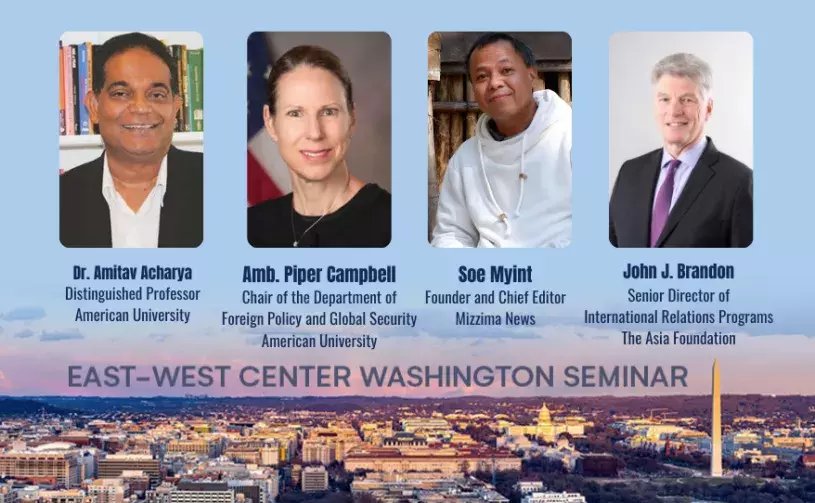
OFFICE/DEPARTMENT
The East-West Center in Washington invites you to an
Indo-Pacific Foreign Policy and Defense Series seminar:
A Book Talk on Tragic Nation Burma: Why and How Democracy Failed
A Conversation With:
Dr. Amitav Acharya
Distinguished Professor at the School of International Service
American University
Soe Myint (joining virtually)
Founder and Chief Editor of
Mizzima News
John J. Brandon
Senior Director of International Relations Programs
The Asia Foundation
Amb. (ret.) Piper Campbell (Opening Remarks)
Chair of the Department of Foreign Policy and Global Security
American University
Dr. Satu Limaye (Moderator)
Vice President, East-West Center &
Director, Research Program and East-West Center in Washington
This book launch and panel discussion will focus on Amitav Acharya’s new book: Tragic Nation Burma: Why and How Democracy Failed? (Penguin Random House, 2023). The military coup of February 2021 and its tragic aftermath represent a profound setback for Myanmar/Burma’s quest for stability and democracy. Why did Burma suffer a military coup in February 2021? What lies ahead as the military regime and the resistance are locked in a battle for control of the country’s political destiny. How have ASEAN and major powers responded to the coup? What are the possible outcomes of the conflict and prospects for a political settlement? These are some of the key questions addressed by this book and will be discussed during the seminar.
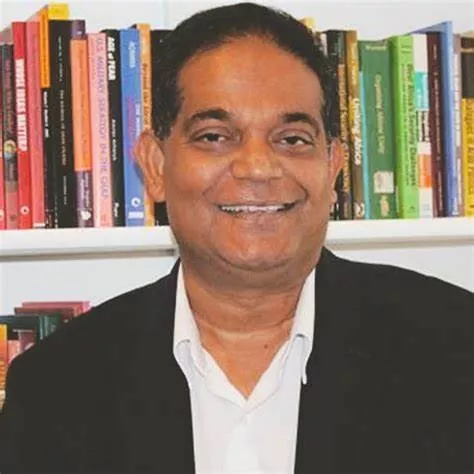
Amitav Acharya is the UNESCO Chair in Transnational Challenges and Governance and Distinguished Professor at the School of International Service, American University, Washington, DC where he also directs the ASEAN Studies Initiative. He is author of several books on Southeast Asia including The Making of Southeast Asia (Cornell 2013); East of India: South of China: Sino-Indian Encounters in Southeast Asia (Oxford 2017); ASEAN and Regional Order(Routledge 2021); and Tragic Nation Burma (Penguin Random House 2023). He has taught as a visiting professor at the Yangon and Mandalay universities in Burma, National University of Singapore, and Chulalongkorn University Thailand.
You can find a recent review of Tragic Nation Burma by the Council on Foreign Relations here. Dr. Acharya also recently published an article on this topic in The Diplomat, to be found here.
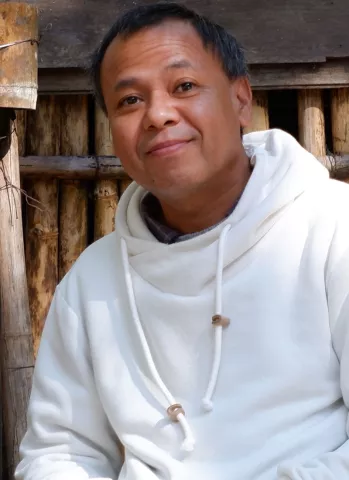
Soe Myint is a journalist and activist, as well as the founder and chief editor of Mizzima News, named the 2007 “Free Media Pioneer” by the International Press Institute. He was born and raised in Myanmar (formerly Burma), a country with a long history of military rule and civil war. Myint and his colleagues are currently working from different locations inside and outside the country as independent media in Myanmar, despite having been charged with incitement by the junta for continued reporting, publishing and broadcasting of Mizzima. Mizzima continues to broadcast and publish independent news and information through two satellite Mizzima TV channels, FM radio, Mizzima websites, Mizzima Facebook, Mizzima YouTube and Mizzima app – reaching more than 30 million readers and viewers worldwide.
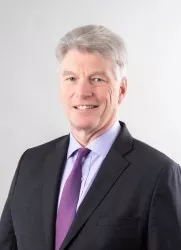
John J. Brandon is the senior director of The Asia Foundation’s International Relations programs, as well as the associate director of the Washington, DC office, Brandon managed the Foundation’s quadrennial “America’s Role in Asia” project in 2004 and 2008 as well as “Asian Views on America’s Role in Asia” in 2016, which examine U.S.-Asian relations in-depth and made recommendations on U.S. policy. His other responsibilities include monitoring U.S. policy toward the Asia-Pacific region and managing program activities in Washington. In 2007-2008 he participated in the Stanley Foundation project on “New Power Dynamics in Southeast Asia.”
A Southeast Asia specialist by training, John Brandon is the editor of Burma/Myanmar Towards the Twenty-First Century: The Dynamics of Continuity and Change (New York: Open Society Institute, 1997) a contributor to Burma: Prospects for a Democratic Future (Washington, D.C.: The Brookings Institution, 1998) and co-author of The 1990 Election in Myanmar (Washington, D.C.: The International Human Rights Law Group, 1990).
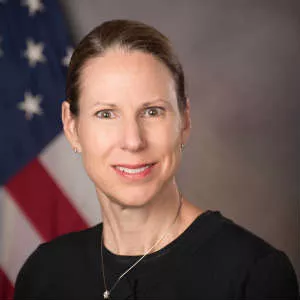
Amb. (ret.) Piper Campbell, Chair of the Department of Foreign Policy and Global Security (FPGS), began teaching at American University in January 2020. She was Administrative Director of SIS's Foreign Policy (USFP) and Global Governance (GGPS) graduate programs before becoming inaugural chair of FPGS. This followed a distinguished, 30-year diplomatic career. Campbell also has taught national security strategy at the National Defense University’s National War College.
Ambassador Campbell is past director and current chair of American University's ASEAN Studies Initiative (ASI). The initiative builds on her interest in East Asia and navigating multilateral organizations. These two expertise combined when she had the opportunity to lead the U.S. Mission to ASEAN based in Jakarta from June – December 2018. In that capacity, she served as “Senior Official” in formal sessions of the East Asia Summit, ASEAN regional Forum and the Lower Mekong Initiative. Leading a multi-agency team involved wide-ranging activities from securing agreement with ASEAN Defense Ministers on holding the first US-ASEAN military exercise to opening a summit of Young South East Asian entrepreneurs.
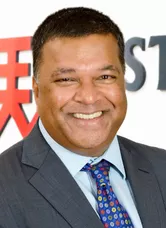
Dr. Satu P. Limaye is Vice President of the East-West Center and Director of Research, East-West Center in Washington, and interim director of the Professional Development Program. He created and directs the Asia Matters for America initiative and is the founding editor of the Asia Pacific Bulletin. He is also a Senior Advisor at CNA Corp (Center for Naval Analyses). He is a graduate of Georgetown University and received his doctorate from Oxford University (Magdalen College) where he was a George C. Marshall Scholar.
He publishes and speaks on Indo-Pacific regional issues and supports various US government, foundation, fellowship, and professional organizations. He recently served on the Center for New American Security (CNAS) Task Force on the US-Philippines Alliance, United States Institute of Peace (USIP) Senior Study Group on the North Pacific, Project 2049 Study Group on the US-Australia Alliance, and Global Taiwan Institute-Taiwan Asia Exchange Foundation project on Taiwan’s New Southbound Policy. He serves on the Korea Economic Institute (KEI) Advisory Council and editorial board of East Asian Policy and regional editor of Global Asia.
In-Person Seminar Protocols
The program will follow the latest guidance concerning COVID-19 protocols in Washington, DC. Masks are optional and proof of vaccination will not be required for entry. As an outside guest, you will be required to check in via QR code to report on your health status to assist in contact tracing if necessary. This data will be stored internally and not released publicly.
This seminar is free and open to the public. This seminar will be on-the-record, but not recorded or streamed. Light refreshments will be served.
The East-West Center in Washington invites you to an
Indo-Pacific Foreign Policy and Defense Series seminar:
A Book Talk on Tragic Nation Burma: Why and How Democracy Failed
A Conversation With:
Dr. Amitav Acharya
Distinguished Professor at the School of International Service
American University
Soe Myint (joining virtually)
Founder and Chief Editor of
Mizzima News
John J. Brandon
Senior Director of International Relations Programs
The Asia Foundation
Amb. (ret.) Piper Campbell (Opening Remarks)
Chair of the Department of Foreign Policy and Global Security
American University
Dr. Satu Limaye (Moderator)
Vice President, East-West Center &
Director, Research Program and East-West Center in Washington
This book launch and panel discussion will focus on Amitav Acharya’s new book: Tragic Nation Burma: Why and How Democracy Failed? (Penguin Random House, 2023). The military coup of February 2021 and its tragic aftermath represent a profound setback for Myanmar/Burma’s quest for stability and democracy. Why did Burma suffer a military coup in February 2021? What lies ahead as the military regime and the resistance are locked in a battle for control of the country’s political destiny. How have ASEAN and major powers responded to the coup? What are the possible outcomes of the conflict and prospects for a political settlement? These are some of the key questions addressed by this book and will be discussed during the seminar.

Amitav Acharya is the UNESCO Chair in Transnational Challenges and Governance and Distinguished Professor at the School of International Service, American University, Washington, DC where he also directs the ASEAN Studies Initiative. He is author of several books on Southeast Asia including The Making of Southeast Asia (Cornell 2013); East of India: South of China: Sino-Indian Encounters in Southeast Asia (Oxford 2017); ASEAN and Regional Order(Routledge 2021); and Tragic Nation Burma (Penguin Random House 2023). He has taught as a visiting professor at the Yangon and Mandalay universities in Burma, National University of Singapore, and Chulalongkorn University Thailand.
You can find a recent review of Tragic Nation Burma by the Council on Foreign Relations here. Dr. Acharya also recently published an article on this topic in The Diplomat, to be found here.

Soe Myint is a journalist and activist, as well as the founder and chief editor of Mizzima News, named the 2007 “Free Media Pioneer” by the International Press Institute. He was born and raised in Myanmar (formerly Burma), a country with a long history of military rule and civil war. Myint and his colleagues are currently working from different locations inside and outside the country as independent media in Myanmar, despite having been charged with incitement by the junta for continued reporting, publishing and broadcasting of Mizzima. Mizzima continues to broadcast and publish independent news and information through two satellite Mizzima TV channels, FM radio, Mizzima websites, Mizzima Facebook, Mizzima YouTube and Mizzima app – reaching more than 30 million readers and viewers worldwide.

John J. Brandon is the senior director of The Asia Foundation’s International Relations programs, as well as the associate director of the Washington, DC office, Brandon managed the Foundation’s quadrennial “America’s Role in Asia” project in 2004 and 2008 as well as “Asian Views on America’s Role in Asia” in 2016, which examine U.S.-Asian relations in-depth and made recommendations on U.S. policy. His other responsibilities include monitoring U.S. policy toward the Asia-Pacific region and managing program activities in Washington. In 2007-2008 he participated in the Stanley Foundation project on “New Power Dynamics in Southeast Asia.”
A Southeast Asia specialist by training, John Brandon is the editor of Burma/Myanmar Towards the Twenty-First Century: The Dynamics of Continuity and Change (New York: Open Society Institute, 1997) a contributor to Burma: Prospects for a Democratic Future (Washington, D.C.: The Brookings Institution, 1998) and co-author of The 1990 Election in Myanmar (Washington, D.C.: The International Human Rights Law Group, 1990).

Amb. (ret.) Piper Campbell, Chair of the Department of Foreign Policy and Global Security (FPGS), began teaching at American University in January 2020. She was Administrative Director of SIS's Foreign Policy (USFP) and Global Governance (GGPS) graduate programs before becoming inaugural chair of FPGS. This followed a distinguished, 30-year diplomatic career. Campbell also has taught national security strategy at the National Defense University’s National War College.
Ambassador Campbell is past director and current chair of American University's ASEAN Studies Initiative (ASI). The initiative builds on her interest in East Asia and navigating multilateral organizations. These two expertise combined when she had the opportunity to lead the U.S. Mission to ASEAN based in Jakarta from June – December 2018. In that capacity, she served as “Senior Official” in formal sessions of the East Asia Summit, ASEAN regional Forum and the Lower Mekong Initiative. Leading a multi-agency team involved wide-ranging activities from securing agreement with ASEAN Defense Ministers on holding the first US-ASEAN military exercise to opening a summit of Young South East Asian entrepreneurs.

Dr. Satu P. Limaye is Vice President of the East-West Center and Director of Research, East-West Center in Washington, and interim director of the Professional Development Program. He created and directs the Asia Matters for America initiative and is the founding editor of the Asia Pacific Bulletin. He is also a Senior Advisor at CNA Corp (Center for Naval Analyses). He is a graduate of Georgetown University and received his doctorate from Oxford University (Magdalen College) where he was a George C. Marshall Scholar.
He publishes and speaks on Indo-Pacific regional issues and supports various US government, foundation, fellowship, and professional organizations. He recently served on the Center for New American Security (CNAS) Task Force on the US-Philippines Alliance, United States Institute of Peace (USIP) Senior Study Group on the North Pacific, Project 2049 Study Group on the US-Australia Alliance, and Global Taiwan Institute-Taiwan Asia Exchange Foundation project on Taiwan’s New Southbound Policy. He serves on the Korea Economic Institute (KEI) Advisory Council and editorial board of East Asian Policy and regional editor of Global Asia.
In-Person Seminar Protocols
The program will follow the latest guidance concerning COVID-19 protocols in Washington, DC. Masks are optional and proof of vaccination will not be required for entry. As an outside guest, you will be required to check in via QR code to report on your health status to assist in contact tracing if necessary. This data will be stored internally and not released publicly.
This seminar is free and open to the public. This seminar will be on-the-record, but not recorded or streamed. Light refreshments will be served.













